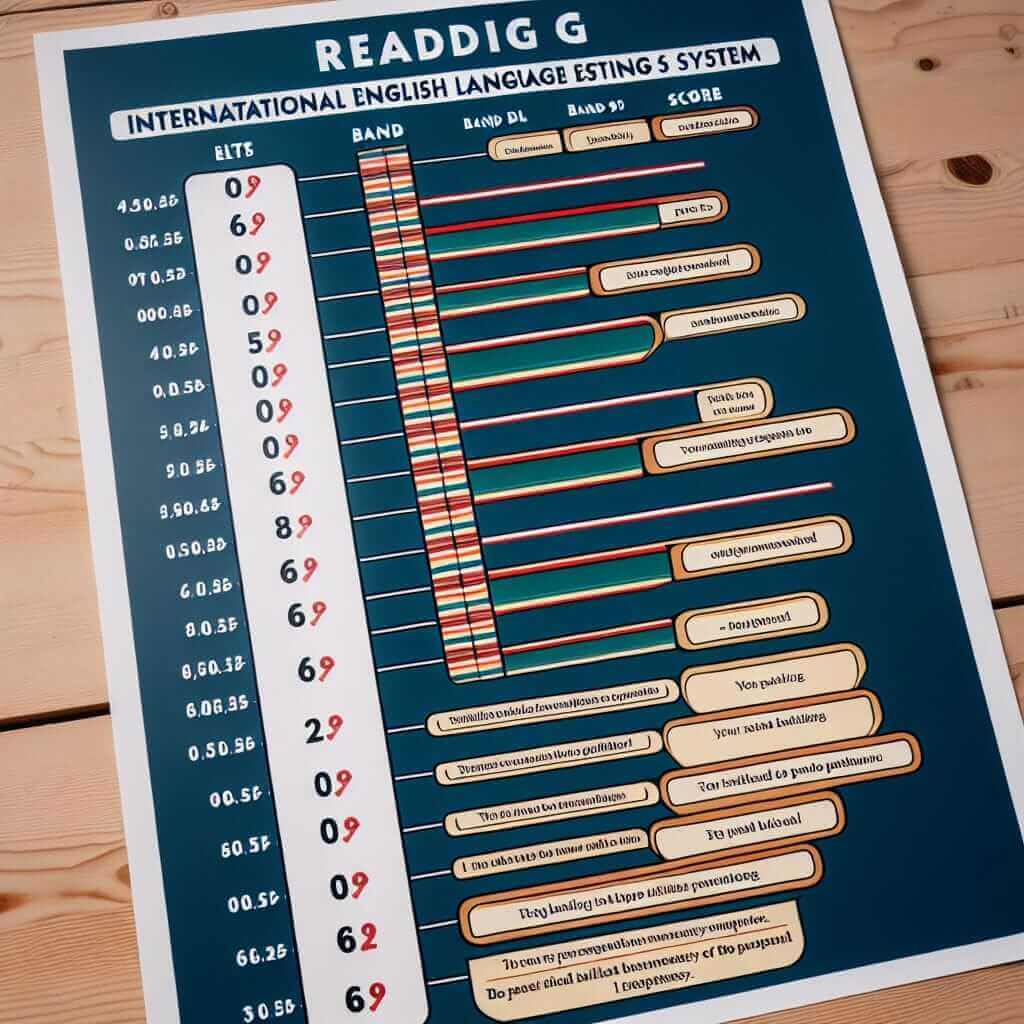As an IELTS instructor with over 20 years of experience, I often get asked about understanding the IELTS Reading score. Many students find the scoring system a bit unclear, especially since it doesn’t directly translate to percentage or pass/fail marks. This article aims to demystify the process and help you understand how your IELTS Reading score is calculated.
Nội dung bài viết
Understanding the IELTS Reading Test
Before we delve into the scoring, it’s crucial to understand the test itself. The IELTS Reading test assesses your ability to comprehend written English. You’ll encounter a variety of texts, from academic articles to newspaper extracts, with a total of 40 questions designed to test different reading skills.
The IELTS Reading Band Score
The IELTS Reading test, like other sections of the exam, is scored on a band scale from 0 to 9, with 9 being the highest. You receive a band score for each section (Listening, Reading, Writing, Speaking) and an overall band score.

How Your Raw Score Translates to Band Score
Your raw score, the number of questions you answer correctly, is converted to a band score. This conversion isn’t linear and varies slightly depending on the test version and difficulty. Generally:
- Higher raw score: Corresponds to a higher band score.
- Lower raw score: Corresponds to a lower band score.
Example:
Achieving a raw score of 30 might translate to a band 7 in one test, while in another, it might be a 6.5. This variation is due to the standardized scoring system employed by IELTS to ensure fairness across all test dates and locations.
Factors Influencing Your Band Score
Your final band score isn’t solely determined by the number of correct answers. IELTS examiners also assess your performance based on:
- Comprehension: How well you understand the main ideas, supporting details, and the writer’s purpose.
- Vocabulary: Your range and accuracy in using vocabulary related to the passage topics.
- Grammar: Your ability to identify and understand grammatical structures within the text.
- Coherence and Cohesion: Your grasp of how ideas are connected and organized within the passage.
Tips to Improve Your IELTS Reading Score
- Practice Regularly: Familiarize yourself with different text types and question formats by attempting practice tests under timed conditions.
- Enhance Your Vocabulary: Expand your vocabulary by reading widely and noting down unfamiliar words and their meanings.
- Improve Your Reading Speed: Time management is crucial. Develop skimming and scanning techniques to quickly locate relevant information.
- Focus on Understanding: Rather than simply aiming for correct answers, strive to genuinely comprehend the passages.
Conclusion
Understanding how the IELTS Reading score is calculated can alleviate anxiety and help you approach the test strategically. Remember, consistent practice, coupled with a focus on enhancing your overall reading skills, is key to achieving your desired band score. Good luck!